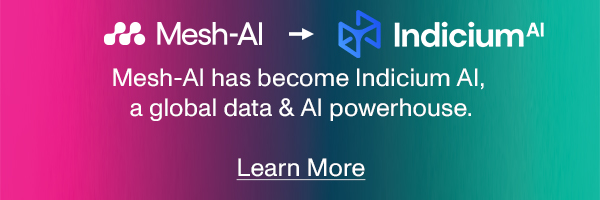


Generative AI is fast becoming the most powerful tool for enterprises when it comes to boosting profits, making savings and reducing risk. As its use becomes more ubiquitous, questions are increasingly being raised over the impact AI systems can have with particular concerns over privacy, security and accountability.
With its growing sophistication and the technology embedded into everyday life, its use and deployment should be guided by clear ethical principles. In this blog we will take a look at both the risks and ethical implications that organisations need to consider when adopting AI, as well as the importance of having a well-governed AI ethics framework in place.
The ability to lessen the tactical burden on the workforce through Generative AI is well known, such as content creation, research and coding. In tightly regulated industries such as financial services, Generative AI can be used to transform regulatory reporting – streamlining operations and saving businesses millions. It can also play a critical role as regulators begin to cascade down the fast-evolving guidelines and legislation that are currently being issued by governments around the globe.
Consumers can feel the benefits too, such as in the energy sector where AI has been used to support vulnerable customers by allowing businesses to tailor engagement to match individuals’ needs.
Meanwhile, in the oil and gas industry, AI has been utilised to provide real-time insights from the North Sea that can be used to identify emissions leakage and determine safety performance.
There is a realisation that the real potential lies in two areas moving forward. Firstly, applying Generative AI to company data to allow employees to derive value from probing company data more effectively. Secondly, as predicted by our Chief AI Officer, David Bartram-Shaw, there is great potential in stacking Generative AI with other technologies like predictive models for a more enhanced output, allowing enterprises to do more.

While the benefits are obvious and have rightly generated an impressive number of headlines, so too have the occasional pitfalls.
Over the past few years, we have seen cases where AI has perpetuated and amplified existing bias in society and others where it has been used to spread disinformation and manipulate public opinion.
The trust users have regarding how a business utilises AI is often closely linked with their trust in the company as a whole–one will impact the other, so it’s critical to get this right.
Creating robust governance when implementing an AI system can build trust from the ground up. It’s also important for organisations to consider the quality of the input data before implementing an AI strategy, as it will have a determining impact on the success or otherwise.
Data needs to be reliable, accurate and democratised. It’s also important that it can be found easily within your organisation and that your data source is traceable.
The conversation regarding Generative AI and Intellectual Property is gaining momentum so it’s key for organisations to have a thorough understanding of where their source data is coming from.
A strong ethical framework is a cornerstone that ensures AI is used in a manner that is transparent, accountable, fair and non-discriminatory.
An AI ethics framework is a set of guidelines, principles, and processes that govern the ethical use of the technology.
It’s used by organisations to ensure that AI aligns with core human values and that it won’t cause harm to individuals or society as a whole.
The framework should also consider the responsibility and sustainability of any such AI enabled capability. Whilst pillars such as risk management and intervention/resolution during times of erroneous behaviour should be included upon its formalisation.
Your AI Ethics Framework requires several key capabilities to ensure systems are being used in a responsible and transparent manner.
These should include:
Each of these capabilities are of equal importance and typically you can’t do one without answering another. Starting with policy definition, organisations can more easily define their operational procedures, governance needs and potential impacts of new and unknown risks to their businesses, customers and the wider markets when adopting AI.
For highly regulated enterprise organisations, an AI policy must include several key elements to ensure that the use of AI is compliant with relevant regulations and ethical principles. These include:
However, this isn’t a one size fits all approach and an organisation’s standards and guardrails will vary based on the level of risk they’re willing to take on. This should be based on the potential impact of an AI enabled service on customers, the organisation or the wider market.
‘Good’ AI ethics looks different for every organisation, but some common themes are consistent such as ensuring that AI enabled systems are transparent and explainable and that data is collected, stored, and used in a responsible and ethical manner.
By having a strong AI ethics framework in place, organisations can ensure that they are using AI in a way that not only drives revenue targets and strategic objectives, but also respects the rights of the individuals and the communities they belong to.
However, as you will see, regulations are evolving almost as quickly as AI technology itself as governments attempt to keep up, and in our next blog we will take a look at how some of the key nations are tackling AI and how you can create a robust framework for your business that will keep the regulators happy.
Most Are Not Ready to Scale AI and a Lack of Data Foundations is Holding Them Back
What Are the Key Implications from the EU AI Act for your Business?
